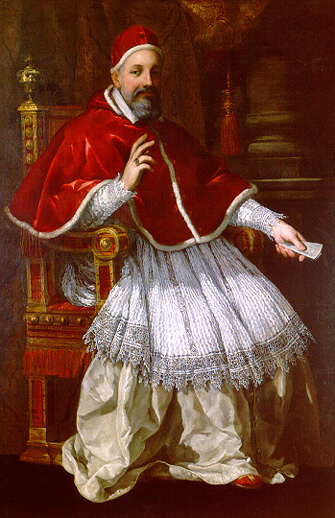
On this day in 1631 the city of Magdeburg in Germany is seized by forces of the Holy Roman Empire and most of its inhabitants massacred, in one of the bloodiest incidents of the Thirty Years’ War.
In November 1630, King Gustavus sent his colonel Dietrich von Falkenberg to direct Magdeburg’s military affairs and promised his personal protection.

Backed by the Lutheran clergy, Falkenberg had the suburbs fortified and additional troops recruited. When the Magdeburg citizens refused to pay a demanded tribute to the emperor, in a matter of months, Imperial forces under the command of Count Johann Tserclaes of Tilly laid siege to the city.The city was besieged from 20 March 1631 and Tilly put his subordinate Imperial Field Marshal Gottfried Heinrich Graf zu Pappenheim in command while he campaigned elsewhere.

In fierce fighting, the Imperial troops conquered several sconces of the city’s fortification and Tilly demanded capitulation. At the time, about 24,000 Imperial soldiers gathered around the walls.
After two months of laying siege, and after the Swedish victory in the Battle of Frankfurt an der Oder on 13 April 1631, Pappenheim finally convinced Tilly, who had brought reinforcements, to storm the city on 20 May with 40,000 men under the personal command of Pappenheim.

The Magdeburg citizens had hoped in vain for a Swedish relief attack. On the last day of the siege, the councilors were convinced that it was time to sue for peace, but word of their decision did not reach the Count of Tilly in time.
In the early morning of May 20, the conquest began with heavy artillery fire. Soonafter, Pappenheim and Tilly started marching against Magdeburg. The city’s fortifications were breached and Imperial forces were able to overpower armed opposition and open the Kröcken Gate which allowed the entire army to enter the city, plundering its rich stores of goods. The city was dealt another blow when Swedish colonel Dietrich von Falkenberg was shot dead by Catholic imperials.When the city was almost lost, the garrison mined various places and set others on fire.

After the city fell, the Imperial soldiers supposedly went out of control and started to massacre the inhabitants and set fire to the city. The invading soldiers had not received payment for their service and took the chance to loot everything in sight; they demanded valuables from every household that they encountered. Otto von Guericke, an inhabitant of Magdeburg, claimed that when civilians ran out of things to give the soldiers, “the misery really began. For then the soldiers began to beat, frighten, and threaten to shoot, skewer, hang, etc., the people.”

It took only one day for all of this destruction and death to transpire. Of the 30,000 citizens, only 5,000 survived, most of them had fled into Magdeburg Cathedral. Tilly finally ordered an end to the looting on May 24, and a Catholic mass was celebrated at the Cathedral on the next day. For another fourteen days, charred bodies were carried to the Elbe River to be dumped to prevent disease. In a letter, Pappenheim wrote of the Siege:
“I believe that over twenty thousand souls were lost. It is certain that no more terrible work and divine punishment has been seen since the Destruction of Jerusalem. All of our soldiers became rich. God with us.”
After Magdeburg’s capitulation to the Imperial forces, there was much bickering between the residents who had favored resistance against the emperor and those who had been against such an action. Even King Gustavus Adolphus joined in the finger pointing, claiming that the citizens of Magdeburg had not been willing to pay the necessary funds for their defense.Pope Urban VIII expressed his satisfaction that “the nest of heretics” was destroyed.

On the other hand, the Imperial treatment of defeated Magdeburg helped persuade many Protestant rulers in the Holy Roman Empire to stand against the Roman Catholic emperor
You must be logged in to post a comment.